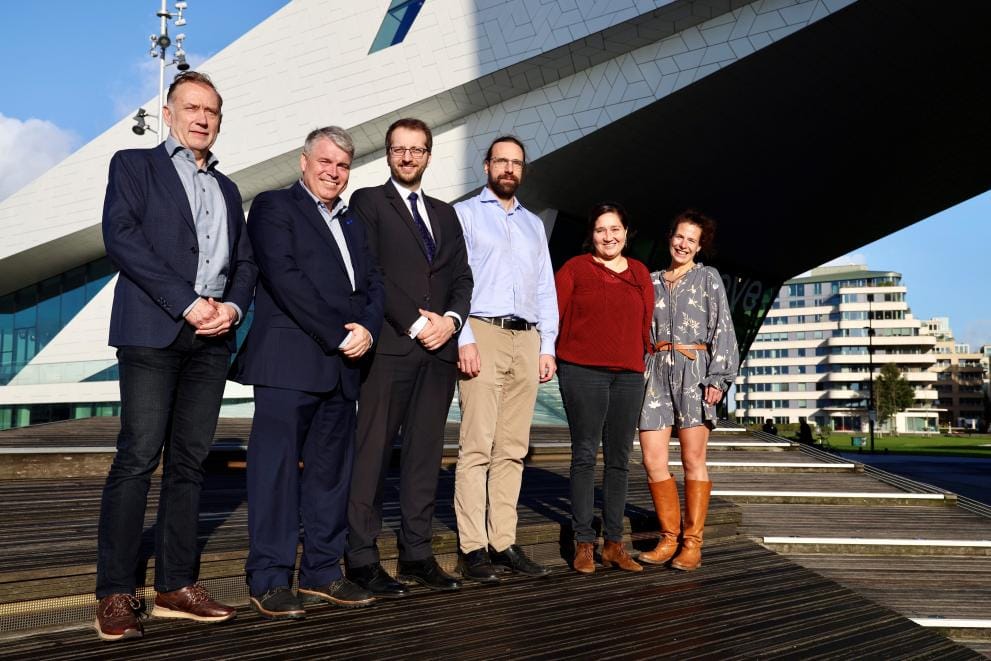During the EuroHPC User Day 2024, held in Amsterdam, it was announced that the new European quantum computer will be hosted and operated by SURF, in collaboration with QuantumDelta NL. This system will be located at the Amsterdam Science Park and will be integrated into the national supercomputer of the Netherlands, Snellius.
The new quantum computer will be based on semiconductor spin qubit technology and, in its initial phase, will have a minimum of 16 physical qubits. This technology is considered highly promising for large-scale quantum information processing due to the small size of the qubits, which allows for high scalability. Additionally, Europe has a well-established semiconductor industry, positioning it as a key player in the mass production of quantum chips as this technology matures.
The addition of this quantum system will complement the EuroHPC quantum computing ecosystem and strengthen the goal of providing European users access to a wide range of quantum platforms. This will enable addressing complex tasks that traditional supercomputers cannot solve as quickly, such as optimizing traffic flows in smart cities or simulating molecular structures crucial for the development of new drugs and materials.
Potential of Quantum Computing for Europe
Quantum computing has generated significant interest for its ability to solve mathematical and optimization problems that are difficult to tackle with conventional systems. The combination of supercomputers with quantum acceleration will allow calculations to be performed in seconds that previously took hours or even days. Applications range from improving climate models for more accurate weather prediction to developing advanced cryptographic algorithms that enhance cybersecurity.
The new European quantum computer will support research and innovation in multiple sectors, providing access to the scientific community, industry, and the public sector. This project positions Europe as a leader in this cutting-edge technology, which promises to transform diverse industries globally.
Collaborative Effort
The quantum system will be operated by the EuroSSQ-HPC consortium, which will handle all integration and user support activities. This consortium brings together seven partners from three countries, including the University of Antwerp (Belgium), GENCI (France), the Netherlands eScience Center, and Leiden University. The project is financially supported by the Digital Europe Program and participating states in EuroHPC, with co-financing of up to 50% of the total cost, representing a European investment of up to 10 million euros.
Impact on European Digital Infrastructure
SURF was selected following a call launched in December 2023 for the operation of European quantum computers integrated into high-performance supercomputers. This announcement is part of a series of efforts by EuroHPC to expand Europe’s capabilities in quantum computing, which has already seen the deployment of quantum systems in countries such as Germany, France, and Spain.
These new developments add to the supercomputing infrastructure that EuroHPC has deployed across Europe, where three of its supercomputers – LUMI in Finland, Leonardo in Italy, and MareNostrum 5 in Spain – rank among the top ten most powerful in the world. With these investments, Europe secures a leading position in the global race for quantum computing and supercomputing.
The Future of Quantum Computing in Europe
With this new quantum computer in the Netherlands, Europe continues to move towards a more robust and diverse computing ecosystem. SURF, which has managed the national supercomputer of the Netherlands since 1984, will coordinate this project, leveraging its vast experience in advanced computing services and international collaboration.
This project will not only strengthen European technological capabilities but also drive collaboration among research institutions, companies, and governments, offering European users access to world-class infrastructure that will facilitate digital economy growth across the continent.
In conclusion, the addition of this quantum computer in the Netherlands marks a significant milestone in the development of Europe’s technological infrastructure. As quantum computing continues to evolve, this new facility will contribute to keeping Europe at the forefront of scientific and technological innovation, solidifying its role as a global leader in this emerging area.
Source: Europe

